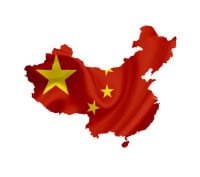 After a decade of enforcing different aspects of its antitrust laws through three separate bodies, China is expected to consolidate antitrust authority into a single agency as part of a broader reorganization of government ministries. The move could have significant repercussions for private parties, following long-standing reports of concerns about staffing shortages and delays in Chinese merger review.
After a decade of enforcing different aspects of its antitrust laws through three separate bodies, China is expected to consolidate antitrust authority into a single agency as part of a broader reorganization of government ministries. The move could have significant repercussions for private parties, following long-standing reports of concerns about staffing shortages and delays in Chinese merger review.
Questions have also been raised about the comparative importance of national economic interests and competition principles in agency decision-making. (China’s antitrust law requires the agencies to consider both competition principles and Chinese economic development.)
The expected consolidation into a single agency could potentially enable Chinese authorities to complete investigations more quickly, while aligning their decisions more closely with the country’s industrial policy goals.
Chinese antitrust enforcement has become a critical consideration for global businesses since passage of the
Anti-Monopoly Law (“AML”) in 2008. Under the existing tripartite structure during the first decade of antitrust
enforcement in China, (1) the Ministry of Commerce (“MOFCOM”) reviews mergers and has the power to block
them outright, (2) the National Development and Reform Commission (“NDRC”) investigates price-related
conduct, and (3) the State Administration for Industry and Commerce (“SAIC”) is responsible for non-price
conduct. The State Council, China’s cabinet, has proposed a single bureau to take over antitrust enforcement
and other duties including food safety.
The announcement comes against a backdrop in which China is increasing the state’s oversight of the
economy, the Communist Party’s oversight of the state (as well as of the corporate sector), and the
responsiveness of both the public and private sector to the priorities of China’s leadership.
Chinese antitrust authorities to use their industrial policy mandate to
take account of a larger group of stakeholders across government and industry
Some commentators and businesses have expressed concerns that China’s current tripartite antitrust regime
can be slow to review complex or politically sensitive mergers, that it sometimes imposes remedies such as
price controls or divestitures that appear unconnected to traditional antitrust theories of harm, and that it targets foreign firms with conduct investigations and fines that appear motivated by political or industrial policy considerations.
Others have complained that the Chinese authorities impose worldwide “hold separate”
requirements that are improperly extraterritorial in jurisdiction. While not uncommon for antitrust authorities
around the world to consult with customers and sometimes competitors of a company whose merger or
conduct is under review, some perceive Chinese antitrust authorities to use their industrial policy mandate to
take account of a larger group of stakeholders across government and industry.
Consolidating antitrust enforcement in a single agency could streamline decision-making by eliminating
competition between bureaucracies and creating a central staff with whom stakeholders—particularly in key
industries—can engage more regularly. While speculative at this point, the result could be better staffed and
more expeditious merger reviews and conduct investigations. Some commentators also expect that a single
entity could improve implementation of the AML, producing more uniform and consistent enforcement
standards and procedures.
Part of the impetus for the new bureau may be to ensure that it coordinates its actions more closely with
China’s leadership. Consequently, remedies, fines, and review times could become more tightly aligned with
China’s political and economic considerations, magnifying the influence of China’s relations with other
countries on deals and cases. Policies such as “Made in China 2025,” which aims to upgrade Chinese
industrial capabilities (particularly in the technology sector) also can be expected to remain a significant
consideration in antitrust review.
China’s antitrust reorganization could enable the leaders of the new agency to speak with a unified,
authoritative voice as Chinese antitrust enforcement moves into its second decade. While the structural
change from three antitrust agencies to one should improve procedural efficiency and enforcement
predictability, it could also have implications for the direction of Chinese competition policy and the role it will play in broader Chinese policy toward global peers. We will continue to monitor